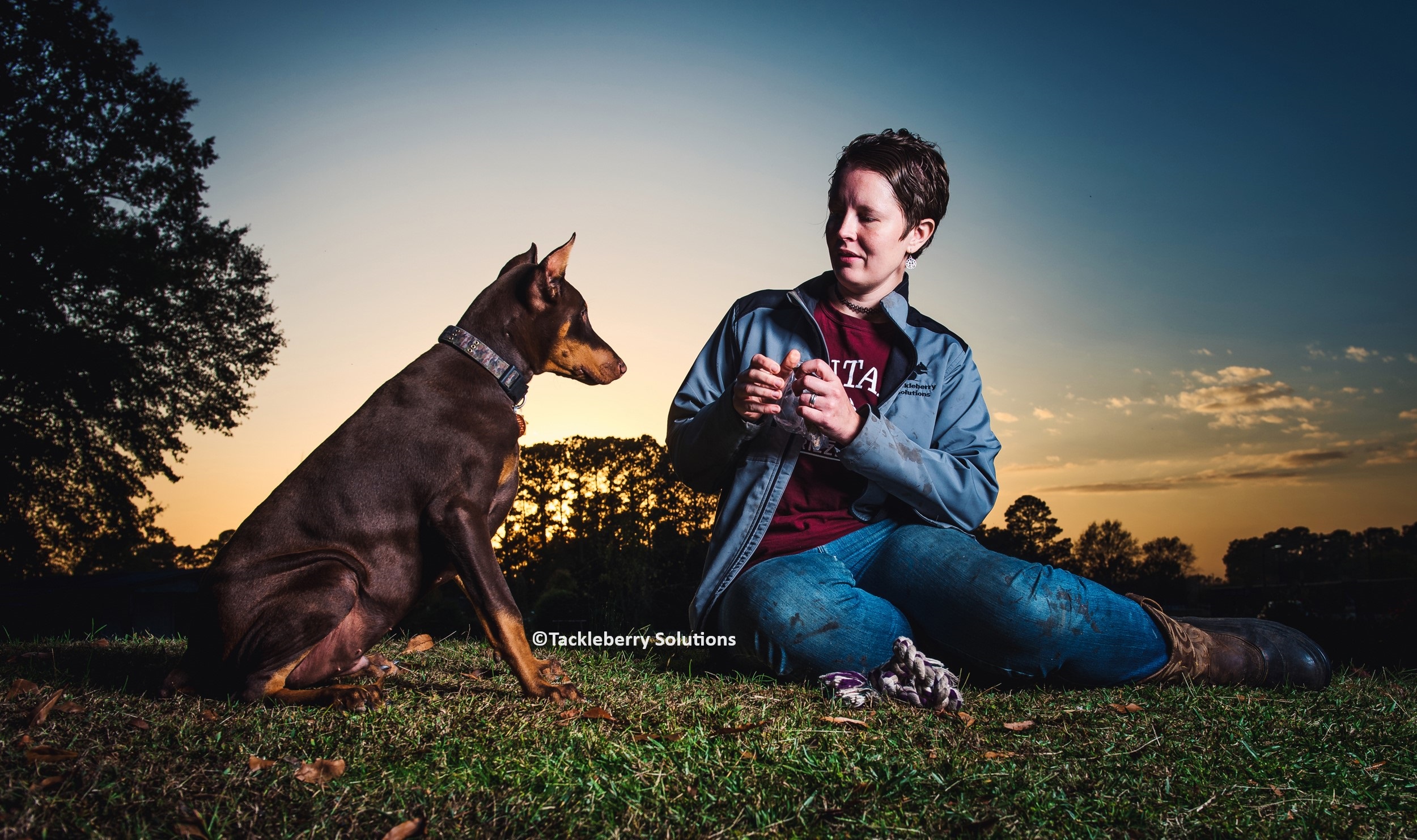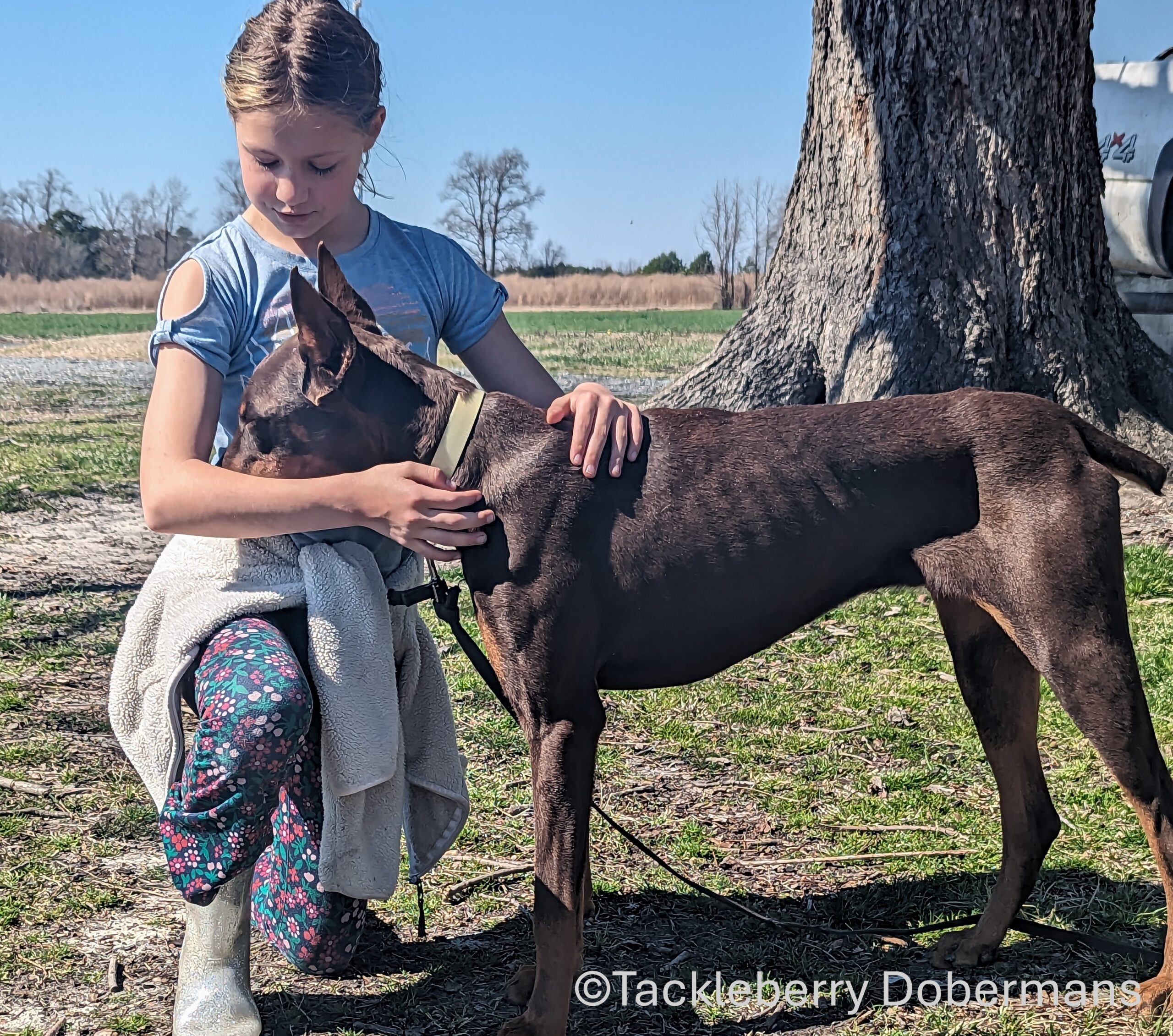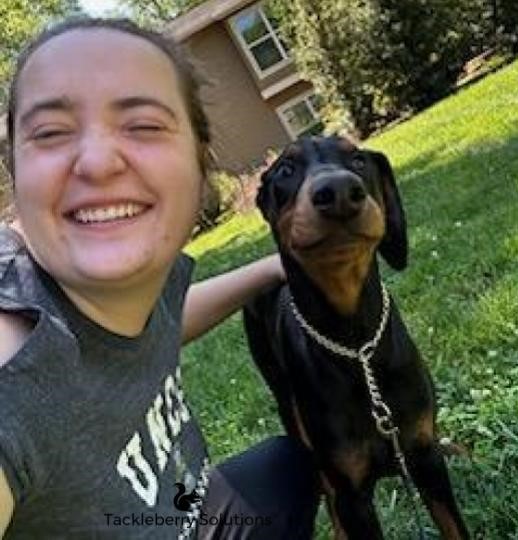An epidemic of Dobermans in need of Adoption
Doberman Adoption: Alarmingly, the number of Dobermans in need of adoption has reached concerning levels, with many ending up in shelters or rescue organizations. Indeed, this increase is often tied to common misconceptions about the breed and a lack of understanding of their needs.
To expound, Dobermans are intelligent, energetic, and loyal. However, their unique traits require owners who are prepared to invest time and effort into their care. Sadly, when these requirements are underestimated, many Dobermans are faced with abandonment or surrender.

Misunderstanding the Breed
Furthermore, rescue organizations have reported that a significant percentage of Dobermans in their care come from homes where the owners did not fully grasp the breed’s demands. Critically, Dobermans perform best when they are given plenty of love, training, and structure. To illustrate, when these elements are missing, the dog may develop behavioral issues. Consequently, this often leads to the unfortunate decision of rehoming. Clearly, this is not the fault of the breed but rather a mismatch between the dog and the owner’s lifestyle or expectations.
Further Reading: Scam Breeders alert: Ensuring your Doberman breeder is legit
Moreover, trends in breeding practices contribute to the problem. Irresponsible or backyard breeders sometimes prioritize profit over the long-term well-being of their dogs. Specifically, these breeders may sell Dobermans to inexperienced owners without ensuring a proper match. Unlike ethical breeders, they often do not include lifetime return clauses in their contracts, leaving the dogs vulnerable when circumstances change. As a result, shelters are left to shoulder the burden.
Further Reading: Puppy Health Guarantee: Why All of the Best Breeders Offer One
No Doberman Left Behind!
Doberman Owner's eCourse: Are you prepared to enter into the World of Psychology for this Unique Breed?
Moreover, Dobermans also find themselves in need of adoption due to unforeseen circumstances. For example, a family’s financial struggles, relocation, or health issues. In these cases, even well-loved dogs may end up displaced through no fault of their own. Dr. Karen Becker, a leading integrative veterinarian, explains, “The emotional toll on dogs losing their homes is significant. They form intense bonds with their families and often struggle to adjust to the sudden change.”
Accordingly, understanding the factors behind this growing issue, future adopters can better prepare themselves to provide these deserving dogs with a stable and loving home.
Further Reading: How to Bond with Your Beloved Doberman Within the First 5 Min.
Have we met?

Hello, my name is Amy Arthur. Your Doberman breeder and guide. My goal is to help you determine compatibility and gain the confidence that you would require in order comfortably handle this unique breed.
Above all, your ability to understand the psychology behind the Doberman's needs is a crucial element for excellent ownership. My gift to you, sharing everything I know about them. Indeed, no one should have to rely on blind google searches to uncover the Doberman's secrets.
Doberman Adoption: Their Need for Love and Healing
Foundationally, Dobermans are widely recognized for their unwavering devotion to their families. Likewise, this natural inclination toward loyalty makes them deeply affectionate companions. However, it also means they can be profoundly affected by the experience of being rehomed. Indeed, when a Doberman loses its home, the emotional impact can leave lasting scars. To expound, Dr. Karen Becker, emphasizes, “Dogs who are displaced often carry feelings of insecurity and confusion, which is why providing stability and reassurance is so essential.”
Healing in the Home after a Doberman Adoption
Foundationally, transitioning a Doberman into a new home requires both patience and empathy. Likewise, rehomed Dobermans may come with unique emotional challenges. However, with the right approach, they are capable of forming remarkable bonds with their new families.
Accordingly, to help ease the adjustment process, certified dog trainer Samantha Brown suggests, “Establishing a predictable routine can be incredibly comforting for a dog adapting to a new environment. Simple steps like feeding them at consistent times and creating a designated safe space can make a big difference.”
In addition to structure, positive reinforcement and confident leadership is key to fostering trust. Foundationally, Dobermans are highly intelligent and respond well to encouragement-based training. Brown advises, “Focus on rewarding desired behaviors rather than punishing mistakes. Building trust should always take priority over discipline in the early stages.”
Further Reading: A Warning for Doberman Owners: #1 Crazy Posture Secret
In addition, another critical aspect of helping a Doberman heal is understanding their need for companionship. To clarify, these dogs thrive on human interaction and may struggle if left alone for long periods. Indeed, they are not the sort of dog that you can just stick in your backyard and forget about.
As the American Veterinary Society of Animal Behavior notes, “Social engagement is vital for a dog’s mental well-being, especially in breeds known for their attachment to owners.” Certainly, by including them in family activities and spending quality time together, you can help fulfill their emotional needs.
Ultimately, Dobermans crave a sense of belonging. When shown kindness, consistency, and love, they can overcome past difficulties and fully embrace their new role as a devoted member of the household.

Rehoming: The Cost-Effectiveness of a Doberman Adoption
Generally, adopting a rehomed Doberman is often a more budget-friendly choice without compromising the opportunity to welcome a loving, devoted pet into your family. To clarify, adoption fees typically range from $200 to $1200, which often include essential services such as spaying or neutering, vaccinations, and microchipping. Indeed, these services can significantly reduce the initial veterinary expenses which will allow you to focus on other aspects of care. Namely, high-quality nutrition or professional training.
Further Reading: Trained Adult Doberman or Puppy? Pros vs Cons
In contrast, when you purchase a Doberman for their first-time home from a reputable breeder, costs can increase anywhere from $2,900 to $30,000 or more. Foundationally, this depends on the dog's lineage, training, and the breeder’s reputation. To expound, while responsible breeders ensure their puppies are well-bred and cared for, the upfront costs can be a barrier for many prospective owners. In contrast, when you adopt a Doberman from a shelter or rescue organization, they can offer a more accessible path to ownership. Indeed, this can be an excellent option for those looking to add a loyal companion to their lives without breaking the bank.
Further Reading: How to find the best Doberman Pinschers in America
Side Note: Ask Tackleberry Dobermans about adopting a rehome or rescue.
Doberman Adoption: The Advantages
Furthermore, another financial advantage of adoption is that many adult Dobermans already come with basic training and socialization. Likewise, this can save you additional time and money that might otherwise be spent on professional obedience classes.
To illustrate, according to the American Society for the Prevention of Cruelty to Animals (ASPCA), "Adopting an adult dog can be a smart choice for families seeking a pet that already has some foundational training." Indeed, this can be particularly helpful for busy households that may not have the time to start from scratch with a puppy.
Additionally, rescue organizations and shelters often provide further insight into the dog’s temperament, health history, and specific needs. This can help you make an informed decision. As canine behaviorist Dr. Susan Johnson notes, "When adopting through a reputable rescue, you’re not only saving money but also gaining the guidance of experienced professionals who want to see both the dog and the adopter succeed." Overall, this support can be invaluable as you transition your new Doberman into your home.
Role of Good Breeders in Doberman Adoption

Responsible breeders play an indispensable role in the world of Doberman adoption. Unlike backyard breeders, ethical breeders prioritize the lifelong welfare of the dogs they bring into the world. One hallmark of a reputable breeder is their unwavering commitment to every dog they’ve bred, even years after the initial sale. As noted by the American Kennel Club (AKC), “Responsible breeders remain a resource for their puppies’ new families and often require the dog be returned to them if the owner can no longer care for it.”
This level of dedication serves as a critical safety net for Dobermans who may need rehoming later in life. For instance, if an owner faces unforeseen circumstances such as financial hardship or health issues, ethical breeders step in to prevent the dog from being abandoned or surrendered to a shelter. Rather than leaving the dog’s fate uncertain, they carefully vet potential new adopters, ensuring the Doberman is placed in a stable and loving home. Dr. Susan Johnson, a canine behaviorist, points out that “reputable breeders go beyond simply selling a dog—they act as lifelong advocates for the animal’s health and happiness.”
Not Everyone is Ready for a Doberman Adoption
In addition, good breeders play a vital role in educating potential owners. Above all, the true experts take the time to explain the unique needs of Dobermans. To clarify, this includes everything from their high energy levels to their deep need for social connection. Importantly, by doing so, they help set realistic expectations and reduce the likelihood of a poor match. Notably, the Doberman Pinscher Club of America (DPCA) emphasizes, “A responsible breeder not only ensures proper breeding practices but also prioritizes the education of prospective owners to promote long-term success.”
Ultimately, when working with a responsible breeder, adopters gain not only a well-cared-for Doberman but also an ongoing source of guidance and support.
Steps to Find a Reputable Doberman Breeder or Adoption Agency
Critically, finding a trustworthy breeder or adoption agency requires careful research and a willingness to ask the right questions.
After you've found a Doberman program that looks promising, schedule a conversation or visit with your chosen breeder or agency. To expound, this step is important for evaluating their commitment to the dogs’ welfare. Namely, ask detailed questions about their breeding or rehoming process. For instance, inquire, “What health checks do you perform on your dogs?” or “How do you ensure a good match between the Doberman and the adopter?”
In particular, responsible breeders and agencies will gladly share this information and offer full transparency. According to Dr. Susan Johnson, a canine behaviorist, “Open communication is a key indicator of an ethical breeder or adoption agency. They’ll prioritize the dog’s well-being over making a sale.”

Don't Get Scammed
What to ask when looking for your Doberman.
To conclude, another essential tip is to observe the environment in which the dogs are raised. Moreover, ethical breeders provide clean, spacious areas for their dogs and ensure they receive proper socialization. Meanwhile, reputable adoption agencies will assess a dog’s temperament and medical history before placing them in a new home. Samantha Brown, a certified dog trainer, advises, “If a breeder or agency is hesitant to let you see the living conditions or provide health documentation, consider it a red flag.”
Finally, seek reviews and testimonials from past adopters. In particular, hearing firsthand experiences can provide invaluable insight into what you can expect. In closing, with these steps, you’ll be well on your way to finding a responsible source and a loving Doberman companion. May God guide you to the furry soul you're meant to save.




